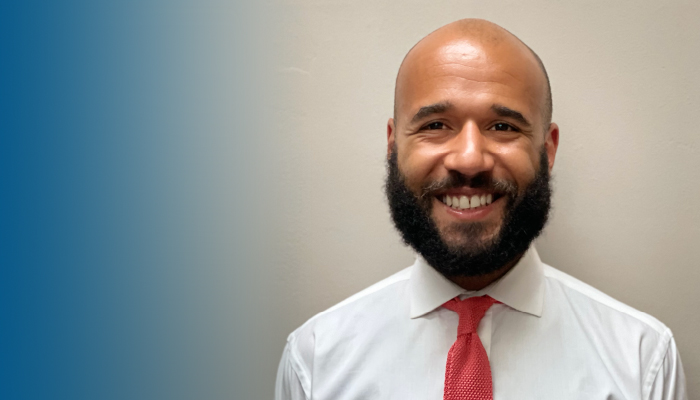HOW CAN WE HELP YOU? Call 1-800-TRY-CHOP
In This Section
“Encourage Diversity of Thought:” Q&A With Marco Carpenter, PhD, Diversity Fellow

Marco Carpenter, PhD
Editor's Note: Diversity is central to our breakthroughs at Children's Hospital of Philadelphia Research Institute. With a community of scientists from unique backgrounds and academic experiences, we are able to collaborate and confront pediatric problems from a variety of perspectives. In this four-part Q&A series, we're featuring four new scholars in the Postdoctoral Research Fellowship for Academic Diversity program at Children's Hospital of Philadelphia. As a key part of CHOP's commitment to diversity, this fellowship funds talented researchers and educators from different backgrounds, races, ethnic groups, and other diverse populations. Join us as these fellows share their areas of research and interest, what diversity in science means to them, and how they spend their hard-earned downtime.
In this Q&A, meet Marco Carpenter, PhD, a scientist studying epigenetic gene regulation.
Please tell us about your background, and what compelled you to apply for the Postdoctoral Research Fellowship for Academic Diversity.
I am on a mission to understand how environmental factors affect the origins of disease via epigenetic modifications. This work is informed by my background in targeted epigenetic editing. My dissertation research was conducted in the lab of Elizabeth Heller, PhD, at University of Pennsylvania, where I pioneered CRISPR-based approaches for in vivo validation of preclinical drug targets. My dissertation identified both a new target and a new therapeutic concept - druggable transcription factors - as treatment modalities for brain disorders. Currently, I am in the lab of William Peranteau, MD, where I am developing CRISPR-based screens to identify novel transcriptional regulators important for the treatment of pediatric blood disorders. I applied for the Diversity Fellowship to advocate for equity in research topics and to cultivate inclusive environments for underrepresented trainees.
Can you describe your area of research, and why you chose it?
I study how environmentally induced epigenetic modifications mediate long-lasting changes in gene expression and stably alter cellular function. I chose to study epigenetic gene regulation because it provides a mechanism by which the environmental experience of marginalized populations can be embedded in the human genome and impact disease. I am most interested in developing epigenetic editing therapies that target these aberrant epigenetic changes.
What does diversity in research and science mean to you?
Innovation is a diversification process in perspective and approach. Every one of us has a unique experience, and when we encourage diversity of thought, we can make great strides in understanding the complexity of biology. Thus, it is important to cultivate diversity as we search for new ways to treat disease.
Tell us about a research project(s) you're excited about?
I am really excited about developing human models of natural epigenetic variation. Mechanistic studies demonstrating causal evidence that individual modifications predict disease outcomes is lacking or fail to model the persistent nature of these changes. I plan to take a top-down approach that models epigenetic variation in humans to distinguish between the mere presence and the functional relevance of a given modification to better inform translational research. By characterizing these human epigenetic variants, I hope to provide causal evidence that epigenetic editing can induce permanent changes that cure disease.
When you're not working, do you have a favorite pastime or spot to relax, enjoy a meal, or be active?
Catch me spending my free time with my partner, French bulldog, and Saint Bernard somewhere outdoors in the summer months. In the winter months, catch us cozied up under a blanket watching true crime TV.


